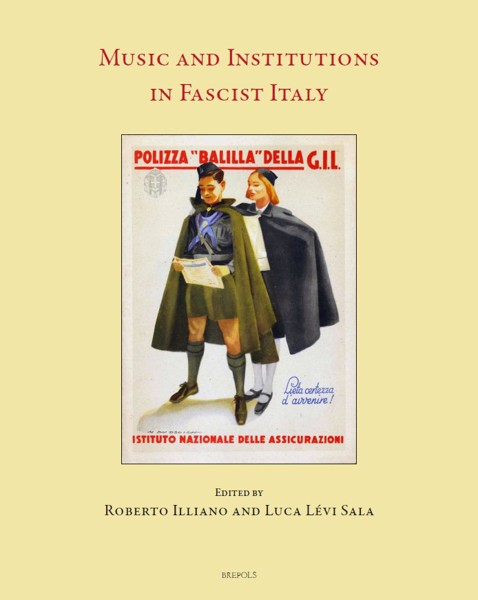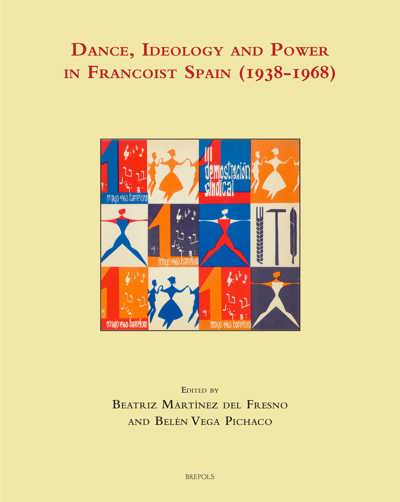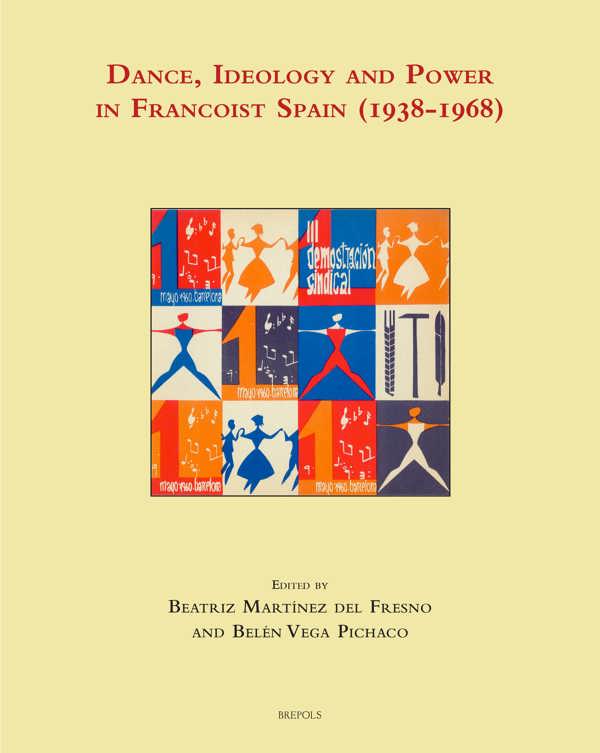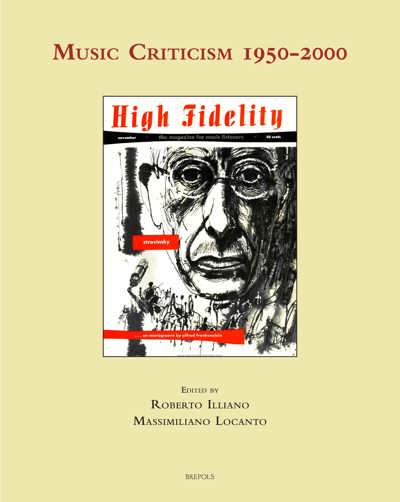
Dance, Ideology and Power in Francoist Spain (1938-1968)
Beatriz Martínez del Fresno, Belén Vega Pichaco (eds)
- Pages: 568 p.
- Size:220 x 280 mm
- Illustrations:11 col.
- Language(s):English, Spanish
- Publication Year:2017
- € 140,00 EXCL. VAT RETAIL PRICE
- ISBN: 978-2-503-57740-1
- Hardback
- Available
This book aims to study for the first time the relationship between dance and Francoism
Beatriz Martínez del Fresno: Senior Lecturer of Musicology at the University of Oviedo (Spain). Editor of book Coreografiar la historia europea: cuerpo, política, identidad y género en la danza (Universidad de Oviedo - MICINN, 2011) and Lead Researcher of the current project Danza durante la Guerra Civil y el franquismo (1936-1960).
Belén Vega Pichaco: Ph.D. in Musicology (2013). Postdoctoral Researcher ‘Juan de la Cierva’ at the University of Oviedo. Her main research topics are Cuban Art Music and Twentieth-Century Music and Dance (History and Aesthetics).
In 1938, the first regular Government of General Franco was constituted in the “national area”. Under this regime, and for almost 40 years between the end of the Civil War in 1939 and the death of the dictator in 1975, the arts in Spain developed inevitably within the frame of promotion, repression and control imposed by Francoism. In this sense, dance constitutes a privileged field of study to explore not only the propagandistic uses of ballet and dance, but also the construction of a national imagery through the activities displayed in diverse functional spectra of the time. This book aims to study systematically for the first time the relationship of dance with the dictatorial regime, the role models endorsed by the political party Falange Española, the traditionalist spheres and the so-called National-Catholicism, along with the propaganda and censorship strategies emanated from the State before 1968. Scholars from various disciplines —Musicology, Anthropology, History, History of Dance, Cinematography— analyse the ideological and political dimensions of choreographic art. Special attention is paid to the practises and discourses on Body, Gender and Nation and to the cultural policies regarding the Festivales de España organized by the Ministry of Information and Tourism. Furthermore, to the imagery of flamenco exhibited in government media and questioned in certain films, the processes of instrumentalisation of traditional dance as also to the existing mechanisms of control and transgression effected in dance halls and other spaces of sociability. Together with the cultural and biopolitical strategies of Francoism, the survival of concepts arising at that time is highlighted where it is still present in the performance and teaching of Spanish dance.
Acknowledgements
Beatriz Martínez del Fresno Introduction: Researching Dance under Franco’s Dictatorship
Spanish Dance and Ideology: Body, Gender and Nation
Inbal Ofer Nation and Body: Physical Culture and Politics in Francoist Spain and Fascist Italy (1919-1945)
Karlos Sánchez Ekiza «Cuando en Castilla sepan que se toca el chistu»: la participación vasca en los concursos de danza de la Sección Femenina y en sus viajes
Belén Vega Pichaco De danza, toreo y el ‘enigma de España’: el discurso de Vicente Marrero y la Generación de 1948
Pedro Ordóñez Eslava Politics of Purity: Vicente Escudero and the Ideological Construction of Flamenco
State Cultural Policies: FESTIVALES DE ESPAÑA
Gemma Pérez Zalduondo «Spain Is a Fiesta» / «Spain Is a Festival»: Music and Dance in Spanish Festivals (1953-1963)
Eladio Mateos Miera Danza española y ballet clásico en el Festival de Granada (1952-1962)
Jesús Ferrer Cayón La «atracción máxima» del Festival Internacional de Santander (FIS): Antonio ‘El Bailarín’ y la instrumentalización política de la dictadura franquista (1955-1969)
Flamenco in Audiovisual Media: Propaganda and Dissent
Bohumira Smidakova Carmen Amaya: New Aesthetics of Gypsiness in Spanish Cinema
Cristina Cruces-Roldán Entre el anonimato, el exhibicionismo y la propaganda. Mujeres del flamenco y el baile español en el NO-DO del primer franquismo (1943-1958)
Christian Franco Torre Hacia una oposición cultural y estética: Duende y misterio del flamenco (1952) de Edgar Neville
Control and Transgression in the Sociability Spaces
Atenea Fernández Higuero Control in Dance Recitals in the Teatro Español in Madrid during the first Post-War Period (1939-1942)
Guadalupe Mera Felipe Reconquistar la honestidad: la Iglesia católica y el baile social durante el franquismo (1939-1964)
Iván Iglesias Everyday Resistances to Fascism: The Falange and Modern Popular Dances in Franco’s Spain (1939-1947)
Carmen P. Pulpón Jiménez Transgression and Observance of Rules in Professional Dancing Practices of bailaoras flamencas during Franco Regime (1950-1968)
Post-Francoist Epilogue
Llorián García-Flórez Spectral Francoism, Ethnographic Archive, Anarchic Choralities in Post-Francoist Asturias
Appendix
Abstracts
Bibliographies
Index of Names




